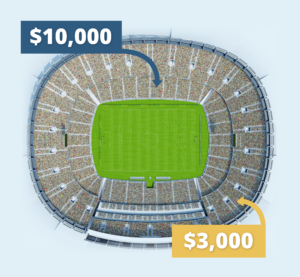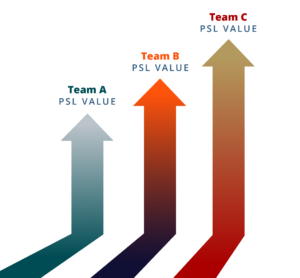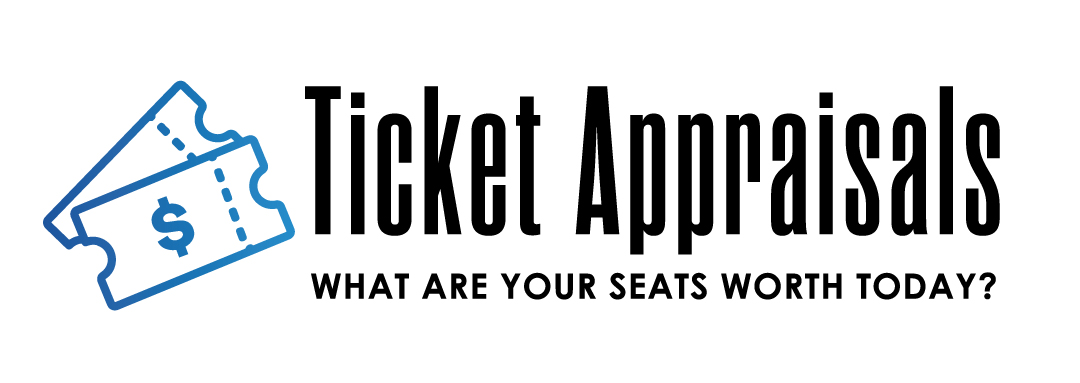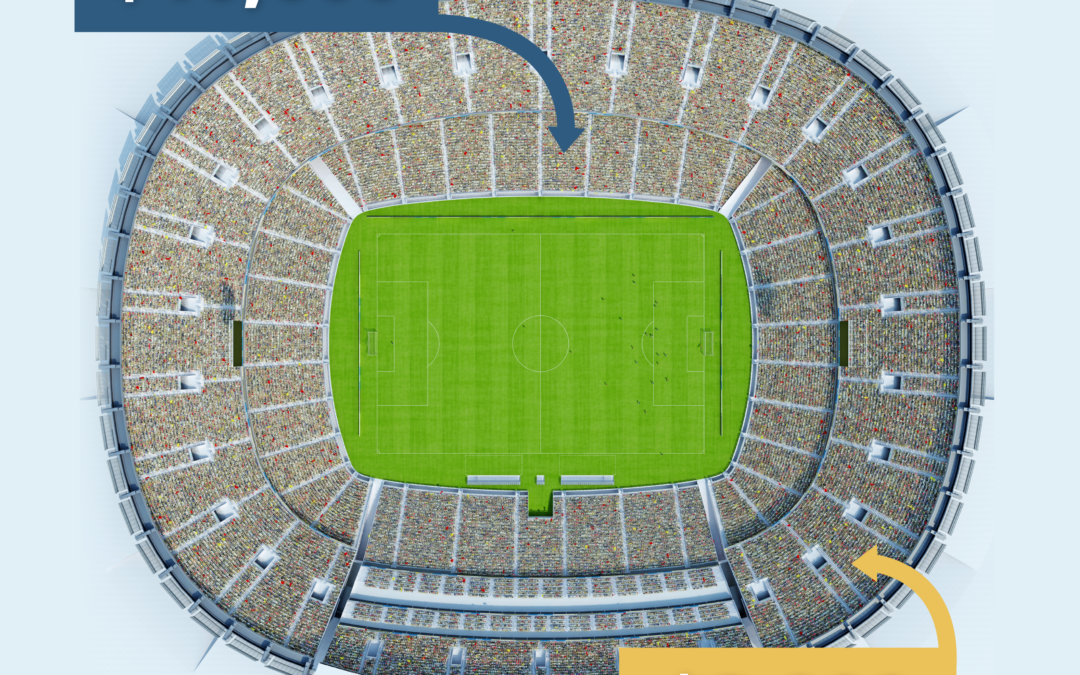Year after year, maybe generation after generation, your season tickets are priceless. Right up until the moment when you’re ready to sell your personal seat license and have to put a price on it.
What is a Steelers PSL value? Ravens PSL value? Eagles PSL value?
Early waves of PSL’s went for hundreds of dollars. As stadium construction became more expensive and team owners saw that there was a market for PSL’s, the price started having an extra zero or two after it. PSL holders who bought in early could cash out 10-20 years later for a windfall, leading some people to see PSL’s as something like an investment vehicle.
But whether you’re selling a stock, a rookie card, a stack of Dogecoin or a PSL, you have to know what’s it worth before you accept an offer. Unless you’re OK with taking a loss or, almost as irritating, letting someone else collect the windfall that should have been yours.
FIRST, CHECK YOUR T-VAL
T-VAL is the Zestimate of PSL’s. Zillow didn’t go public because it’s a place to buy and sell houses. Zillow became the standard for online home shopping because of the Zestimate: a data-driven, real-time valuation of the houses they list. Objective, transparent, game-changing. That was the Zestimate, and the T-VAL is the same.
T-VAL calculates the market value of a personal seat license based on layers of data that shape ticket pricing.
Determining the Quality of Your Seat

T-VAL starts at the lowest level: the seat itself. We first put ourselves in the seat. How’s the view? What are the sight lines?
We then take a step back to look at which part of the stadium the seat is in – lower bowl or upper deck, 50-yard line or the corner of the end zone – and examine how much the other seats in that row and in that section go for on the primary and secondary markets for single-games, as well as any other PSL’s from nearby seats that have gone on the market.
We then zoom all the way out and analyze the stadium itself. T-VAL considers the capacity of the stadium, the overall desirability of attending games there and, importantly, the age of the stadium. PSL’s are, at their core, a way to finance new construction and renovations. If a stadium is moving towards retirement, not only may it not be equipped with the modern amenities and comforts, but the PSL itself might be heading towards maturity. Not every team rolls over PSL’s from one stadium to the next, so the value of a PSL may change based on the team’s long-term stadium plans.
On the subject of amenities and comforts, there’s also the little matter of the weather. It takes a certain type of fan to go to Green Bay or Buffalo games in December. T-VAL looks at how weather affects ticket sales and attendance.
Strength of the Home Team

Some season ticket holders go to every game. Others just go to the games that are worth going to. T-VAL sizes that up, as well.
T-VAL looks at the strength of the home team as well as divisional and league-wide trends in attendance, performance and interest. If those factors are all heading down, PSL holders may have less interest in attending games and less ability to attract a strong price for single-game tickets they put up for sale. If the games aren’t worth going to, the PSL won’t be worth as much.
Data-Driven Pricing

Finally, T-VAL analyzes the raw economics, the pure quantitative data. This is where our experience in the ticket industry really comes into play.
Every year, millions of tickets change hands on primary and secondary markets. In the 20+ years our founding team has been working in pro sports ticket sales, that means hundreds of millions (billions?) of transactions. T-VAL’s calculations are built on that experience. We look at how much the seats adjacent to your own – including the other season ticket holders who have put the PSL’s up for sale – have traded game by game, year by year.
T-VAL also examines patterns in the quantity of seats in each sale. Most PSL holders have licenses for several seats. Are the number of seats you’re putting on the market the same amount that most people want to buy for that section?
We do that at the level of the row, the section, the corresponding section on the other side of the stadium, the stadium as a whole, the division, the league…
If there’s a piece of ticketing data out there, at some level, T-VAL takes account of it.
Trust and Transparency in PSL Valuation

Personal seat licenses don’t always have a good reputation. Most people only hear of them when someone is ranting about the different ways money has taken over sports, right in between the cost of premium streaming apps and the latest outrage about which owner wants to move the team to a trendier city.
We get that, which is why we want to bring an element of trust and transparency to the PSL market.
Most PSL resellers look at your tickets, slap a price on them and list them for sale. Neither the buyers nor the sellers know what went into that price, and they certainly don’t know what the reseller is taking out of that price. Is the price based on data analysis? Guesstimate? Last-ditch attempt to meet the sales quota for the quarter?
That’s not going to help anyone think better of those who issue, buy, sell or resell PSL’s.
When we present you with your T-VAL, we don’t just give you a number and say “Take it or leave it.” The T-VAL market value report gives you the right context to make a decision.
The T-VAL market value report presents the historical price range for the seats most comparable to your own, the price range for comparable PSL’s and how the number of seats you have a license for compares to the most valuable purchasing patterns. We tell you how your row, zone, stadium, geographic location and the seat itself all score relative to others in the stadium.
The T-VAL runs on a lot of data and no secrets. Whether you decide to buy, sell or hold, you can have the confidence that you’re making a well-informed, market-based choice.
How Much is My PSL Worth?
Markets run on information: more people knowing more things means more value and better decisions. For the first 30 years of personal seat licenses, the amount of information embedded in the price plummeted after the initial sale. Season ticket holders continued to renew their licenses, buy their season tickets, use some, sell some, all without knowing the real value of what they held. Somewhat ironically, as the single-game ticket marketplace became more sophisticated and season ticket holders could attain full value for the individual tickets they put up for sale, the thing that made it all possible – the PSL – became opaque.
The T-VAL is bringing to the PSL market the same level of data gathering, rigorous analysis and transparency that changed the ticket industry.
Personal seat license holders, interested buyers, PSL marketplaces, even the teams themselves all benefit from a comprehensive analysis that produces an objective market value for every PSL. That’s why T-VAL is partnering with all of them, increasing our warehouse of data and providing meaningful analysis in return.
We can’t help your team win, but we can help you win as you look to buy, sell or manage a PSL transaction.
What’s your T-VAL? Let’s find out.


Recent Comments